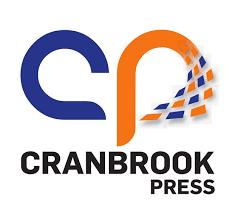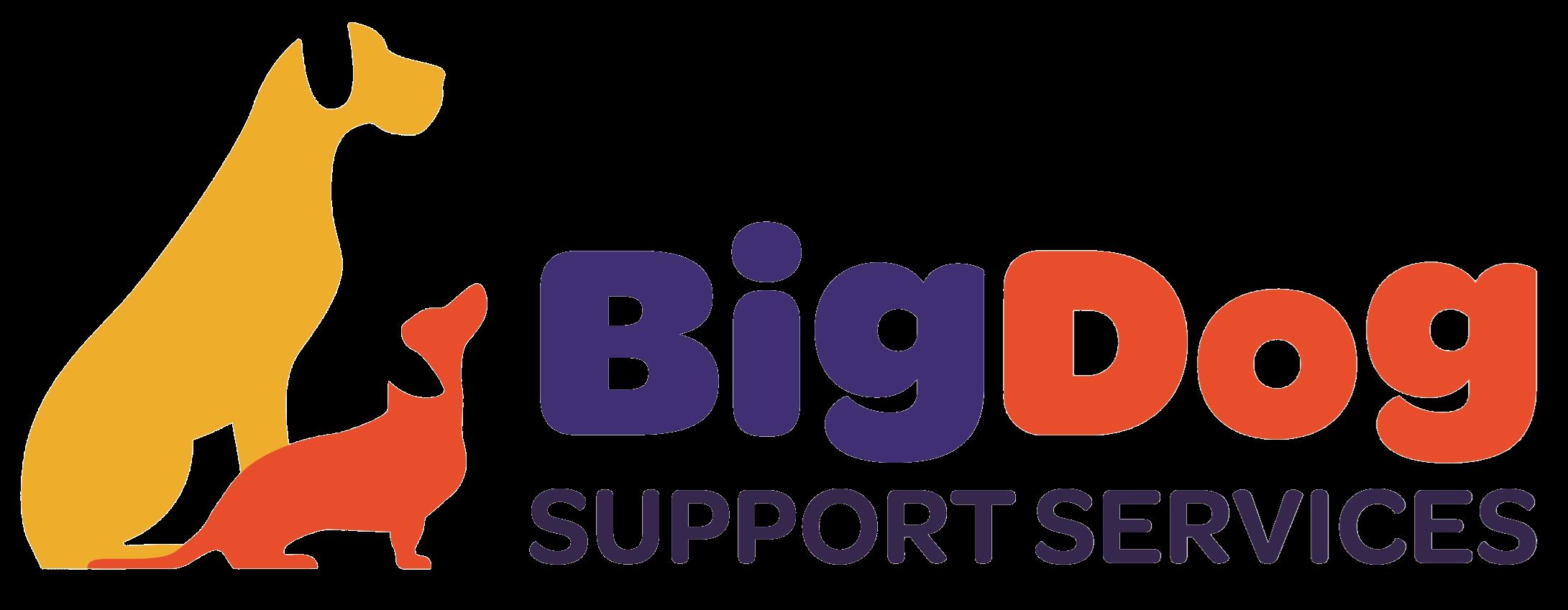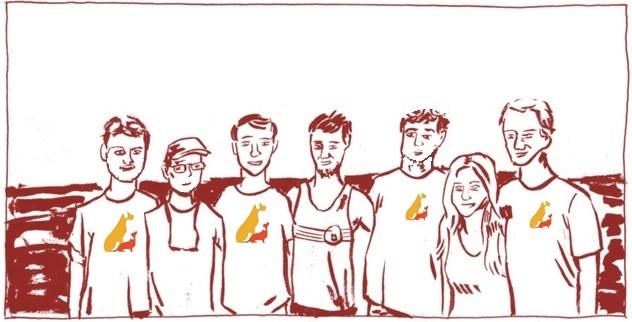


















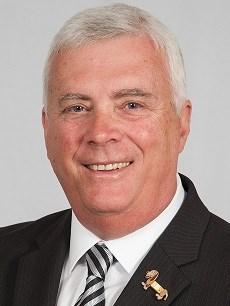






















Preparing school leavers with the knowledge, skills and confidence to participate successfully in the community and the economy is essential to securing young people's future and the future of Queensland.
Careful planning and preparation helps ensure a smooth transition into employment, further education, vocational training and life in the community.
This guide is designed to give young people an overview of the supports available through government agencies and the community. As a live document it contains links to websites, Facebook, Twitter and other online pages.
 Steven Paull JP (Qual) Director BigDog
Steven Paull JP (Qual) Director BigDog
More than ever, there is a need to empower young men and women living with a disability.
Ensuring that they are informed and prepared will help them seize opportunities at high school and ultimately prepare them for life beyond school in the broader community.
The Guide is well researched and connects students with a range of services and resources that will make a difference to their lives.
Every student should have the opportunity to work towards their heart-felt desires and aspirations –and this Guide is an important step to helping them get there.
 Trevor Watts MP Member Toowoomba North
Trevor Watts MP Member Toowoomba North
As you grow up and become more independent, you might be wondering how old you need to be before you can do things like open a bank account, join a political party, get a tattoo, see a doctor alone or consent to medical treatment, learn to drive, get a parttime job or be left at home alone. Some of these issues are covered by law, and the laws vary from state to state.
In Queensland, the age of consent is 16 and “Consent” means giving your free and voluntary agreement to sex.
If you are aged 16 or over but under 18 you cannot consent to sexual contact with someone who is caring for you or supervising you (eg. a teacher or a foster carer). There is no set age from which you can consent to medical treatment but generally if you are aged over 18, you are most likely able to consent.
It is not against the law to smoke or carry cigarettes but it is illegal to sell cigarettes to you as you are under 18.
Anyone over 15 can get a job. If you are between 13 and 15, your employer will need a permit for you to work (unless you are working for your family’s business).
If you are under 18 there are some jobs you are not allowed to do. Those jobs include: door-todoor sales, working on a fishing boat, working on a building or construction site before buildings are at lock-up stage.
In 1990 the Australian Government entered an agreement to adopt the United Nations CROC. This is a formal protection of human rights for children, that is, everyone under 18 years of age.
Some examples of your rights include:
• The right to say what you think and to be listened to
• right to look for information, receive it and pass it on by writing, speaking, art, etc
• right to freedom of thought, conscience and religion
• Right to privacy
• Right not to be abused, neglected or exploited
• Right to an education

Access to income and financial supports
Employment
Training and help to find a job
Aids and equipment
Technology to make everyday activities easier
Support and services for your health and wellbeing
Everyday living
Help with the things you need to do every day
Access to educational opportunities at all stages of life
Housing
Information to help you find a home
Transport
Help to get you where you want to go
Access to sport, recreation, travel and tourism
Help with discrimination or legal problems
The Disability Gateway has information and services to help people with disability, their family, friends and carers, to find the support they need in Australia. Put a tick the box and record the date when this section was completed
The NDIS is Australia’s first national scheme for people with disability. It provides funding directly to individuals.

There are around 4.3 million Australians who have a disability. Within the next five years the NDIS will provide an estimated 500,000 Australians who have permanent and significant disability with funding for supports and services. For many people, it will be the first time they receive the disability support they need.
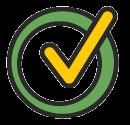
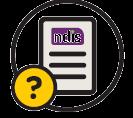
Go to the NDIS website and answer some simple questions to see if you may be able to apply for the NDIS. These questions are just a guide, the final decision about eligibility is up to the NDIA.
If you meet the eligibility criteria you can ask to become a participant by completing an Access Request Form. If you are eligible for the NDIS you will receive an “access decision” letter and the next step is creating your NDIS plan.
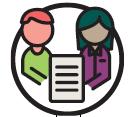
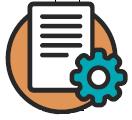
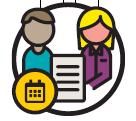
Creating your plan
Your plan is a written agreement worked out with you. Everyone's plan is different. The NDIS will ask questions about how you are going in different areas of your life, what goals you would like to pursue and what kind of help and support you need. This will help them to develop a plan that provides the right support for you.
Using your plan
Once you have your plan, there are people who will help you start it, find out different types of budgets, and how to use the myplace portal.
Reviewing your plan and goals
Your plan review is the opportunity to check your supports are working for you and they are helping you pursue your
When it comes to accessing NDIS funding, it’s important to know about the different NDIS support categories and what kind of help they can offer.
The first batch of NDIS support categories are classified as core supports. These services assist you as an NDIS participant in being able to complete daily living activities, as well as help you work towards your individual NDIS goals.
The second of the NDIS support categories is capital. These supports relate to any investments that you need to make to assist you in daily life.
Most of the NDIS support categories are classified as capacity building activities. This relates to any support or services that helps you build skills that will enable you to live as independently as possible.
Partners in the Community employ LACs. For most people an LAC will be their main point of contact for the NDIS. An LAC will connect people to supports, services, activities in their community and other government services. LACs also work in communities to help them become more accessible and inclusive for all people with disability.
A Support Coordinator can help implement your plan and build your ability to connect with supports and services. Your NDIS Planner may also consider a Support Coordinator if your situation is more complex or you have specific goals you need help to achieve.
The NDIS Commission works with NDIS participants, NDIS providers and the community to uphold the rights of people with disability and build the capacity of providers to deliver safe and quality services and supports.
The NDIS Commission operates a new, nationally consistent system to safeguard the rights of NDIS participants, and will achieve this by working with people with disability, providers and the community.
NDIS Commission is responsible for:
• registration and regulation of NDIS providers, including through the new NDIS Practice Standards and an NDIS Code of Conduct
• Compliance monitoring, investigation and enforcement action
• Responding to concerns, complaints and reportable incidents, including abuse and neglect of a person with disability
• National oversight of behaviour support, including monitoring the use of restrictive practices within the NDIS with the aim of
reducing and eliminating such practices
• Leading the work with states and territories to design and implement nationally consistent NDIS worker screening
• Facilitating information sharing arrangements with the National Disability Insurance Agency (NDIA), State and Territory and other Commonwealth regulatory bodies.
It’s OK to complain – speaking up can help to improve services for you and other people. You have the right to raise a concern about NDIS supports if you are not happy. NDIS Commission will work with you, and with providers and workers, to resolve problems and improve the quality and safety of NDIS supports – for you and other participants.
Further Information
1800 035 554
https://www.ndiscommission.gov.au/
The Code of Conduct requires workers and providers who deliver NDIS supports to:

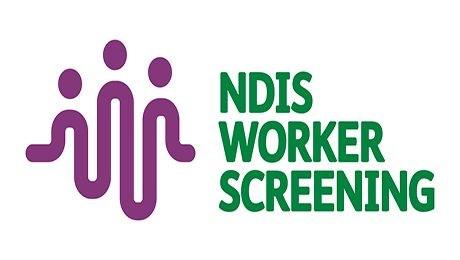



Act with respect for individual rights to freedom of expression, self-determination and decision-making in accordance with applicable laws and conventions
Respect the privacy of people with disability
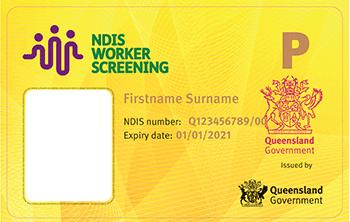

Provide supports and services in a safe and competent manner, with care and skill
Act with integrity, honesty and transparency

Promptly take steps to raise and act on concerns about matters that may impact the quality and safety of supports and services provided to people with disability

Take all reasonable steps to prevent and respond to all forms of violence against, and exploitation, neglect and abuse of, people with disability
Take all reasonable steps to prevent and respond to sexual misconduct
The NDIS Worker Screening Check is an assessment of whether a person who works, or seeks to work, with people with disability poses a risk to them. The assessment determines whether a person is cleared or excluded from working in certain roles with people with disability.
The NDIS Worker Screening Check is conducted by the Worker Screening Unit in the state or territory where a person applies for it. The Worker Screening Unit also decides whether a person is cleared or excluded. Registered NDIS providers are required to ensure that they only engage workers who have been cleared in certain roles, called risk assessed roles and include management positions with a registered provider and those delivering NDIS supports or services.
myGov is a secure way to access government services online with one login and one password.
myGov Inbox will keep your letters, statements and messages safe, secure and in the one place. You can update your address and contact details in your myGov account and your changes will also be made with your linked member services.
You are responsible for your myGov account and making sure only you can access it.
You must not allow someone else to sign-in or use your myGov account.
You must keep your myGov password, myGov PIN and your selected secret questions and answers safe. Do not share these details with anyone else.
You can choose to receive myGov Inbox message notifications via SMS or by email.
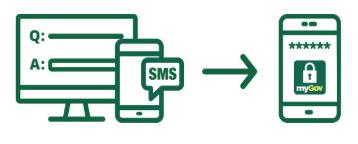
What Services can you access
• Australian JobSearch
• Australian Taxation Office
• Centrelink
• Child Support
• Department of Veterans' Affairs
• HousingVic Online Services
• Medicare
• My Aged Care
• My Health Record
• National Disability Insurance Scheme
• National Redress Scheme
• State Revenue Office Victoria
You must have an email address that is not shared by another person to open a myGov account.
People with Disability Services Australia delivers social service payments and services to Australians through Centrelink.
People who receive support from Centrelink come from many different backgrounds and the benefits people receive reflect this. There are payments for people with disabilities, for older people, people who live in rural or remote communities, indigenous Australians, those affected by a natural disaster such as bush fire, families, job seekers and students – to name just a few.
The easiest way to claim, update your details, give us documents, report your income and get reminders is online.
Centrelink will give you a Customer Reference Number (CRN) when you get payments and services from them.
You may also be able to get extra payments to help with the cost of living such as Telephone Allowance, which helps with the costs of having a phone and home internet service or Rent Assistance, which is a regular payment if you pay rent.
You can do most of your Centrelink business with them using this app.
If you don’t have a myGov account or a Centrelink online account you’ll need to set them up.
You’ll then need to link your Centrelink online account to myGov. You only need to do this once.
Download the Express Plus Centrelink app to your device.
Select Start Now.
Accept the Terms and Conditions.
Enter your myGov sign in details.
Enter the security code or answer your secret question.
Create your 4 digit myGov PIN.
132 468 Payments and Services
https://www.servicesaustralia.gov.au
Financial help if you have a permanent physical, intellectual or psychiatric condition that stops you from working.
Not everyone with disability or a medical condition can get DSP.
You can still access services under the NDIS if you’re getting or claiming DSP.
You need to meet both nonmedical and medical rules to get DSP.
• you’re between 16 and Age Pension age when you claim
• you meet the residency rules
• you meet the income and assets tests.
• your condition will last more than 2 years
• your condition is fully diagnosed, treated and stabilized
• you have an impairment rating of 20 points or more
• your condition stops you working at least 15 hours a week for the next 2 years.
An extra payment if you’re a young person with disability and on an income support payment.
You don’t need to apply for Youth Disability Supplement. Centrelink will check if you can get the supplement when you apply for DSP.
The most Youth Disability Supplement you can get is $129.80 a fortnight.
You may need to participate in a Program of Support before you claim DSP.
• job preparation and job search
• work experience and training
• injury management
Help to find and keep a job.
https://www.humanservices.gov.au/ individuals/services/centrelink/ disability-support-pension
Put a tick the box and record the date when this section was completed
To get Youth Allowance as a student or an Australian Apprentice you must be one of the following:
• 18 to 24 and studying full time
• 16 to 24 and doing a full time Australian Apprenticeship
• 16 to 17 and independent or needing to live away from home to study
• 16 to 17, studying full time and have completed year 12 or equivalent.
A payment to help with travel costs for work, study or looking for work if you have a disability, illness or injury that means you can’t use public transport.
A free and voluntary service to pay bills and expenses as regular deductions from your Centrelink payments.
A free service that can inform and educate you about financial matters.
A one off payment if you’re in severe financial hardship and extreme circumstances.
An income support payment if you can’t work or study for a while because of illness, injury or disability.
A way for families to plan for the long term care and accommodation needs of someone with a severe disability.
Helping you find, estimate and compare payments and services you may be eligible for.
https://www.humanservices.gov.au/ individuals/services/centrelink
fa tick the box and record the date when this section was completed
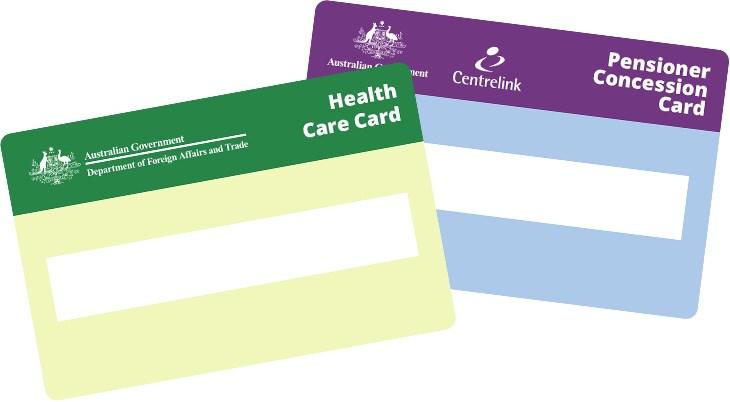
A Health Care Card entitles you to cheaper prescription medicines under the Pharmaceutical Benefits Scheme.
You may be eligible for a Low Income Health Care Card if you are not eligible to a Pensioner Concession Card. This is assessed through a separate claim to a health care card.
Further discounts may be available for water rates, gas and electricity bills.
You don’t need to apply for a Health Care Card. Centrelink will send you one if you're eligible and it is usually for a period of 1 year.
To get a Pensioner Concession Card (PCC) You must be receiving a pension such as the Disability Support Pension, Parenting Payment (Single), or Carer Payment. You don’t need to apply for a Pensioner Concession Card. Centrelink will send you one if you're eligible.
Further Information
https://www.humanservices.gov.au/ individuals/services/centrelink
The internet is a great way to keep in touch with your friends and meet new people. However, it’s important to be careful about who you talk to, what information you post and the things you say to other people and about other people.
Privacy issues arise almost every day. They have become more prevalent with the growth and use of technology in our everyday life. Even sharing the most basic information about yourself online, may put your privacy at risk.
There are lots of choices when deciding to get a phone. The most important step is deciding how much money you have to get a new phone and be able to afford to keep it running. If you’re thinking about going onto a mobile phone plan don’t feel pressured to sign it on the spot. It’s OK to shop around, ask lots of questions and talk to your parents or another adult before signing up.

IDCARE responds to many types of identity and cyber security concerns including:
• Lost or stolen credentials
• Remote access of your device
• Scams
• Email phishing attacks
• Hacking of social media or email
• Mobile phone porting
• Unauthorised access to your bank, credit card or superannuation accounts
• Bank, phone or other utility accounts opened in your name
• Credit report inaccuracies
IDCARE services are free of charge
https://www.idcare.org/
Medicare is Australia’s universal health care system.
The Medicare Benefits Schedule (MBS) lists the services Medicare pays for. The Department of Health manages the MBS.
Having a valid Medicare card is important for you to claim a Medicare benefit, visit a doctor who bulk bills, seek treatment as a public patient in a public hospital or having a Pharmaceutical Benefits Scheme prescription filled.
As you’re aged 15 or older, you can get your own Medicare card. Previously as a child under 15 you would have been listed on your parents’ card.
If you’re on your parent’s Medicare card, you’re already enrolled. This means you don’t need to re-enrol. Otherwise you’ll need to complete a Medicare enrolment form and submit it with your documents at a service centre.
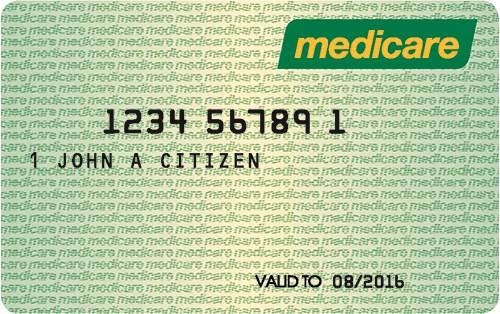
You can use a digital copy of your Medicare card as soon as you enrol. To get the digital version you’ll need to sign into the Express Plus Medicare app. To use the app, you need a myGov account linked to your Medicare online account. If you don’t have these, set them up and then download the app. The Australian government pays for Medicare through the Medicare levy. Working Australians pay the Medicare levy as part of their income tax.
You get a Medicare card when you enrol in Medicare. Medicare will usually tell you your Medicare number straight away. Your card should arrive in 3 to 4 weeks. They’ll send it to the address you give them. Further
When you have a My Health Record, your health information can be viewed securely online, from anywhere, at any time – even if you move or travel interstate.
You can access your health information from any computer or device that’s connected to the internet.
Whether you’re visiting a GP for a check-up, or in an emergency room following an accident and are unable to talk, healthcare providers involved in your care can access important health information, such as:
• allergies
• medicines you are taking
• medical conditions you have been diagnosed with
• pathology test results like blood tests
• immunisation information. This can help you get the right treatment. You don’t need to be sick to benefit from having a My Health Record. It’s a convenient way to record and track your health information over time.
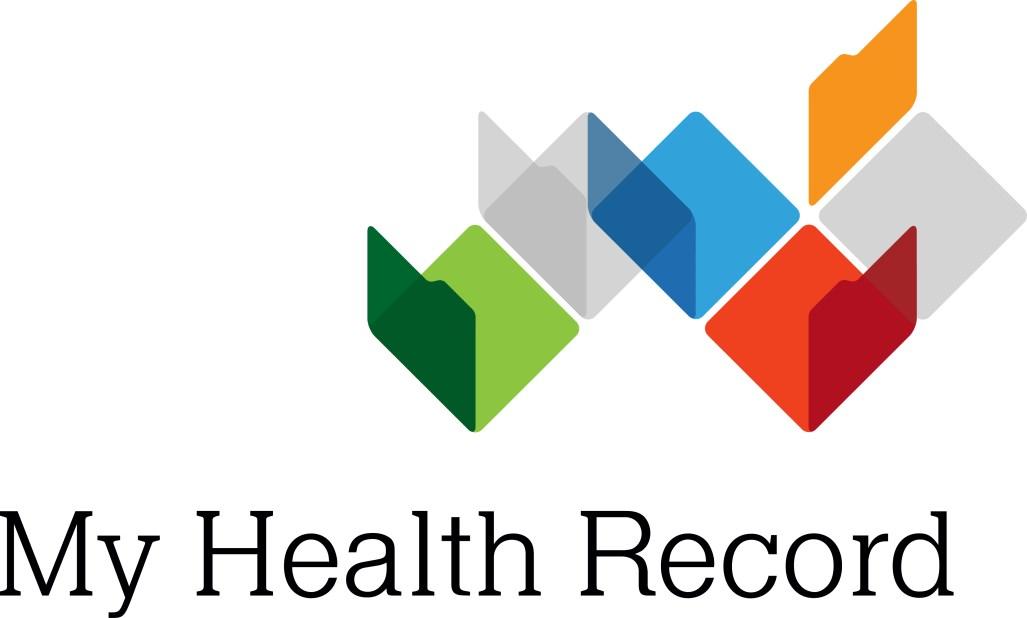
You can choose to share your health information with the healthcare providers involved in your care.
If you wish, you can manage your My Health Record by adding your own information and choosing your privacy and security settings.
By allowing your doctors to upload, view and share documents in your My Health Record, they will have a more detailed picture with which to make decisions, diagnose and provide treatment to you. You can also ask that some information not be uploaded to your record.
Before you start work, or soon after, you will need to get a TFN. The main tax you'll pay is income tax, which is charged on income you receive, such as salary and wages.
When you submit your online form, the confirmation page provides you with an application reference number, an application summary and the next steps to complete your application.
You must attend a participating Australia Post retail outlet in person within 28 days of submitting your online form.
When attending a participating Australia Post retail outlet:
• You must present current documents that prove your identity for registration purposes (proof of identity documents).
• The ATO will accept only unaltered original documents and not photocopies. Documents that have been corrected or changed and initialed are not acceptable.
• If you do not present sufficient proof of identity documents, your application summary will be
returned to you and your application will remain incomplete.
The ATO provides support services to help people with disability, including offering tax and superannuation information and products in a range of accessible formats.
If you're receiving a disability or carer's support payment from the Australian Government, you may be eligible for tax and superannuation concessions and exemptions.
If you're managing the financial affairs of someone with a disability, it's best to understand what concessions and exemptions apply to them.
You can explore the nuts and bolts through interactive activities, videos and quizzes online at Tax, Super and You.
The Australian Securities and Investments Commission (ASIC) regulates financial services in Australia.
MoneySmart is the website designed to help you make smart choices about your personal finances. It offers calculators and tips to give you fast answers to your money questions.
Most banks offer special bank accounts specifically for young people. A few of them even have special websites to help the education process.
You can learn how to manage your money so you can do the things you want like:
• Starting work
• Budgeting
• Credit cards
• Online and mobile banking
• Prepaid cards
• Relationships and money
Third Party access/trust accounts are available if unable to operate
bank account/cash card safely and budget money independently.
If your debts are getting out of control or you are struggling to make ends meet, it is important to act quickly. Help is available. A financial counsellor can help you get a clear picture of your situation, understand your options and work out a budget.
To find a free financial counselling service near you call the National Debt Helpline on 1800 007 007.
Download the free TrackMyGOALS app to help you to set, plan, track and manage your savings goals.
Further Information
1300 300 630
https://www.moneysmart.gov.au/ fty
Put a tick the box and record the date when this section was completed
The Queensland Government’s traditional role in disability services has changed as a result of the signing of the full scheme NDIS bilateral agreement.
Their role has now shifted to supporting and advocating for people with disability, working in partnership with the disability sector to create an all-abilities Queensland and monitoring the NDIS to ensure it delivers the outcomes expected for people with disability.
DCQ is made up of a team of people who will deliver on the sector’s strongest demand – nothing about us without us. Through DCQ, we can ensure NDIS clients are treated with respect and dignity, have control of the services they receive and have continuing opportunities for social and economic participation.
A key strategy of DCQ is to seek and consider the lived experience and views of people with disability, their families, carers and the sector, as we continue to build a more inclusive and accessible Queensland.
All Abilities Queensland is the site where there are guides associated with Communities for all.
Held annually in September and raises awareness of how Queenslanders can play their own role in creating an all abilities Queensland.
The week acknowledges the important and varied contributions people living with a disability make to our state and also aims to empower people with disability, raise awareness of disability issues, and improve access and inclusion throughout the wider community.
Held annually on 3 December this international day aims to increase public awareness, understanding and acceptance of people with disability and celebrate their achievements and contributions.
The Council is a key channel for independent advice to the Minister on a range of disability and related matters that affect the broader community and promote a socially inclusive Queensland.
Provided through Department of Seniors, Disability Services and Aboriginal and Torres Strait Islander Partnerships and includes:
• Companion Card
• Disability Worker Screening
• Disability Parking Permits
• Taxi Subsidy Scheme
• Goods and Food Relief Programs
• Human Services Quality Framework
• Community Support Scheme
• Community Transport
• Neighbourhood and Community Centres
• Guide, hearing and assistance dogs
• Grants and Funding
• Preventing and responding to abuse, neglect and exploitation
Further Information
13 QGOV (13 74 68)
1800 491 467
https://www.dsdsatsip.qld.gov.au/
QCSS a new scheme that provides supports to people who, with a small amount of assistance, can maintain or regain their independence, continue living safely in their homes, and actively participate in their communities.
You may be eligible for the QCSS if you are under 65 years old (or under 50 years old for Aboriginal or Torres Strait Islander people) with:
• a disability (and are not eligible for the NDIS)
• chronic illness, mental health or other condition, or
• circumstances that impact your ability to live independently in the community.
Further Information
1800 600 300
QCSSaccesspoint@ozcare.org.au
https://
www.serviceavailabilityregister.com.au
Put a tick the box and record the date when this section was completed
The Carers (Recognition) Act 2008 defines a carer as:
"An individual who provides, in a noncontractual and unpaid capacity, ongoing care or assistance to another person who, because of disability, frailty, chronic illness or pain, requires assistance with everyday tasks."
Carers Queensland is the peak body representing and advocating on behalf of carers throughout Queensland and provides a range of Carer support services .
The Queensland Government's Carer Business Discount Card recognises and supports carers, including approved foster and kinship carers, by providing discounts on goods and services at participating businesses throughout Queensland.
Present your card at the time of purchase for goods, or when organising quotes or estimates for services.
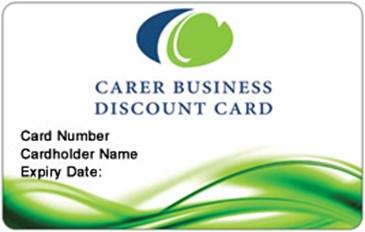

If you receive a Centrelink carer payment or carers allowance and live in Queensland, you are eligible for a Carer Business Discount Card, which recognises the contribution carers make to the community and provides discounts on products and services. Foster and kinship carers do not need to apply. They will automatically receive a Carer Business Discount Card shortly after being approved as foster or kinship carer.
Further Information
13 QGOV (13 74 68)
https://www.qld.gov.au/community/ support-for-carers/carer-card
https://www.qld.gov.au/disability
Put a tick the box and record the date when this section was completed
If you have a disability and a lifelong need for 'attendant care support' in order to participate in community activities and attend venues, the Companion Card can help you with the costs of getting out and about with the support of a companion.
Companion Card holders receive a second ‘companion' ticket at no charge at participating venues and on public transport. The 'companion' ticket is also exempt from booking fees.
The Companion Card is issued in the name of the person who has a disability, and is valid for 5 years.
A companion is any person who accompanies a cardholder and provides attendant care support. The cardholder’s chosen companion may be a paid or unpaid assistant or carer, family member, friend or partner.
The Companion Card is accepted at a range of venues and activities across Queensland from regional shows and the Brisbane Ekka, to sporting venues, tourist attractions, theatres and cinemas.
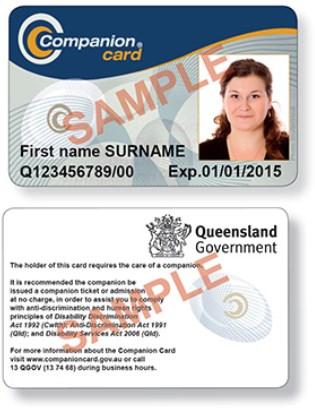
Not all people with disability are eligible for a Companion Card. Please check your eligibility before completing an application form.
Further Information
13 QGOV (13 74 68)
https://www.qld.gov.au/disability/outand-about/subsidies-concessionspasses/companion-card
The Companion Card is recognised throughout Australia. Put a tick the box and record the date when this section was completed
The Department of Education is committed to ensuring every student with disability succeeds and is achieving their full potential. They are committed to inclusion where students of all abilities can:
• attend their local state school and be welcomed
• access and participate in a highquality education and fully engage in the curriculum alongside their similaraged peers
• learn in a safe and supportive environment, free from bullying, discrimination or harassment
• achieve academically and socially with reasonable adjustments and supports tailored to meet their learning needs.
As part of planning for the transition to post school options, Queensland students complete a SET plan. SET Plans are completed with all students in Year 10. Through the SET planning process, young people have an opportunity to plan their education and training pathways through the senior phase of learn-
ing. The process supports young people to set goals, and to work towards those goals in a broad range of settings, including school, work, vocational and community settings.
You may be eligible for transport assistance between home and school.
Category 1 public transport (bus, rail, ferry) or conveyance allowance
Category 2—contract minibus and taxi. Eligibility is different for each.
Short-term accommodation for a student with a disability provides families funded respite from caring for their children. Respite may be centre-based or home-based.
Further Information
13 QGOV (13 74 68)
https://education.qld.gov.au/
https://www.qld.gov.au/disability/ children-young-people/going-school
Put a tick the box and record the date when this section was completed
School-based apprenticeships and traineeships (SATs) allow high school students, generally in Years 10, 11 or 12, to work for an employer and train towards a recognised qualification, while completing your secondary schooling and studying for your Queensland Certificate of Education (QCE) and/or Overall Position (OP) score.
SATs help young people go places, whether that's a full-time job, a trade career, university, TAFE or other training. The school has a role in providing support throughout the SAT.
Students must gain support and approval from their school to undertake a SAT. Students continue to attend school as usual, however, some of their paid employment and/or training will become part of their school timetable. A SAT must impact on the student's school timetable to be considered schoolbased.
Normal award wages and conditions apply and students can seek further information from the Fair Work Ombudsman on 13 13 94.
A work sampling placement provides students with the opportunity to test personal vocational preferences through performing tasks in a workplace. Students select placements according to their future occupational aspirations. The student may experience the following outcomes:
• clarification of employment goals
• first-hand information about what it means to work, as well as about the work processes of the organisation and the work environment.
A structured work placement involves the student participating in specific tasks in the workplace as described in the Vocational Education and Training (VET) in Schools program.
Further Information
1800 210 210
info@desbt.qld.gov.au
https://desbt.qld.gov.au/training/ apprentices/sats
Put a tick the box and record the date when this section was completed
MASS provides funding for medical aids and equipment to eligible Queensland residents who have a permanent and stabilised condition or a disability. The scheme helps people to live at home and avoid early or inappropriate residential care or hospitalisation.
Aids and equipment are subsidy funded on a permanent loan basis, through private ownership or the purchase of consumables. If you pay for more than 50% of the cost for an item, you can choose to take ownership, rather than having a permanent loan. However, this means that you are responsible for all repairs to that item.
Under SSS, you may be eligible to receive a pair of basic prescription spectacles, once every 2 years.
Extras such as transitions, tinting, anti-reflective coating, UV guard and/or hard coat are not covered. If you would like these, you will need to pay for them yourself. You can have SSS lenses fitted to your own existing frames.
Funding support for eligible people to access artificial limbs (prosthesis)
This Scheme helps with electricity costs for people who have a chronic medical condition, such as multiple sclerosis or a severe inflammatory skin condition, which is aggravated by changes in temperature. It currently provides $340.85 per year and reviewed every two years.
Concession for eligible people who are seriously ill and use a homebased oxygen concentrator or kidney dialysis machine.
Further Information
13 HEALTH (13 43 84)
https://www.qld.gov.au/health/support
Get Started assists you if your family can least afford or you may otherwise benefit from joining a sport or recreation club. You may be provided with a voucher of up to $150 to help pay for club membership and/or participation fees. The vouchers can be redeemed at a sport or recreation club registered with the program.
You can apply as long as you’re under the age of 18 and a resident of Queensland and you hold or your parent, guardian or carer holds a Centrelink Health Care Card or Pensioner Concession Card or if you are identified by two referral agents which may include a school teacher, police officer or a member of Parliament.
To apply for a Get Started voucher you must first register for a QGrants account which can be created at any time. You need to go to QGrants and click on ‘Sign up here’
Complete the required details; make note of your email address and password as these will be required to apply for the voucher.
QGrants is a whole-of-government grants management system (GMS) that operates as one portal for you to apply

Volunteering is a great way to contribute to your community. It provides a variety of benefits, including making new friends, sharing skills, getting job-ready and becoming a part of the local com-
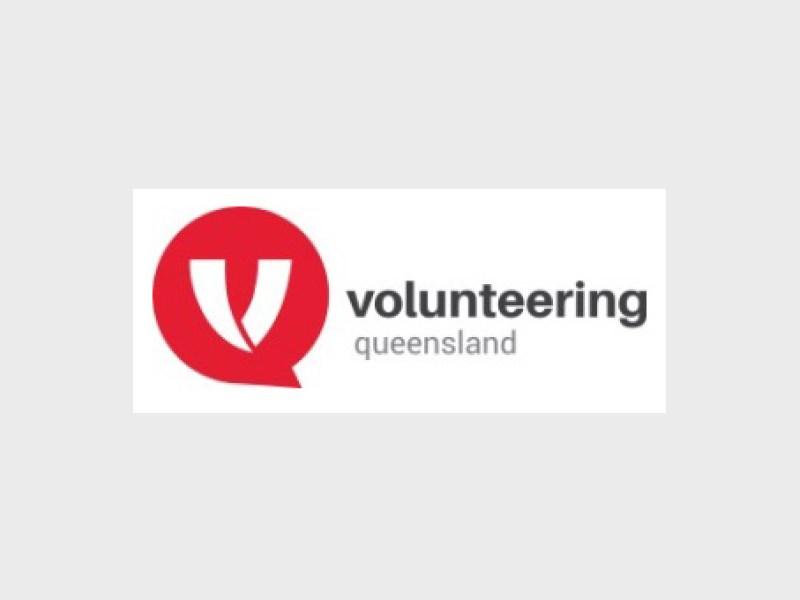
Fairplayvouchers@npsr.qld.gov.au
Activate your account (You will not be able to apply for a voucher until you have activated your account)
Put a tick the box and record the date when this section was completed
The Transport Standards recognise that access to public transport enables people with disability to fully participate in community life.
You must declare that you’re medically fit to learn to drive the class of motor vehicle. If you have a medical condition that might adversely affect your ability to drive safely, You are required to show a medical certificate from your doctor stating that you’re medically fit to drive or ride safely.
A motorised wheelchair or mobility scooter used by a person with a disability on a footpath or to cross roads must be registered as a motorised wheelchair.
The TSS subsidises taxi travel - half of the total fare, up to a maximum of $30 per trip - for people with severe disabilities. Extended to 31 October 2025.
A disability parking permit is granted to applicants when their ability to walk is severely restricted by a medical condition or disability. A permit is also granted to organisations that transport individuals who meet the eligibility criteria for the granting of a disability parking permit and who are required to enter or exit the vehicle when accessing a disability parking bay.
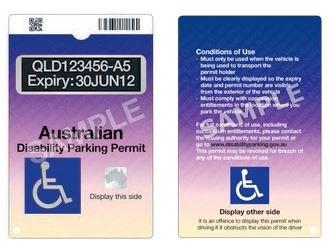
Further Information
13 QGOV (13 74 68)
https://www.tmr.qld.gov.au/
Put a tick the box and record the date when this section was completed
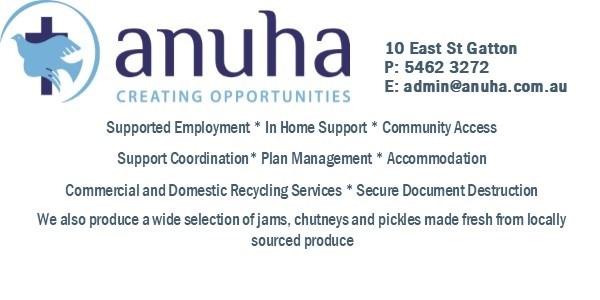
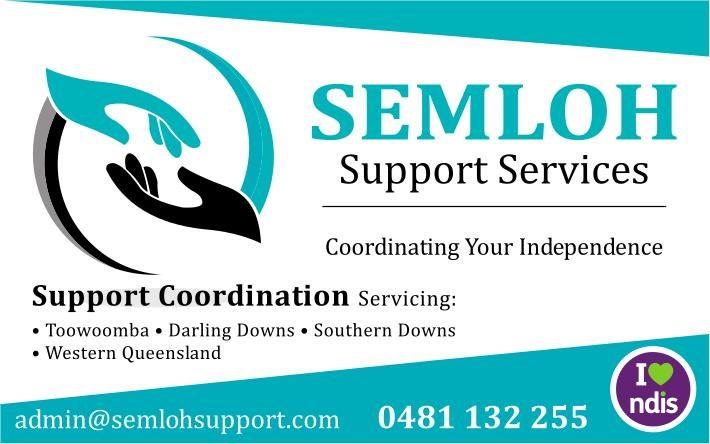
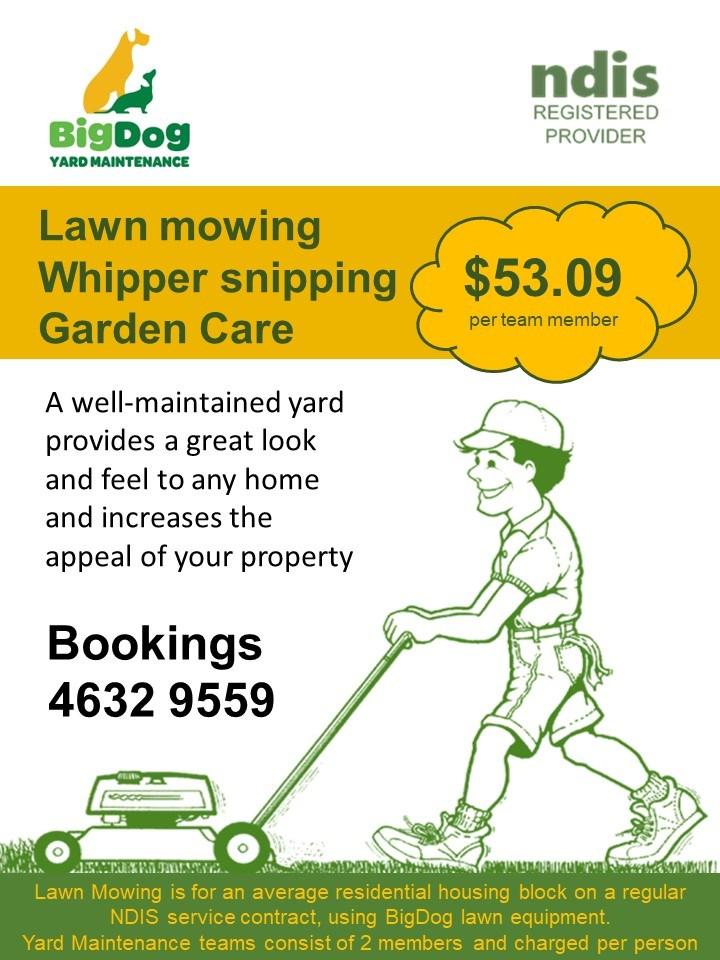
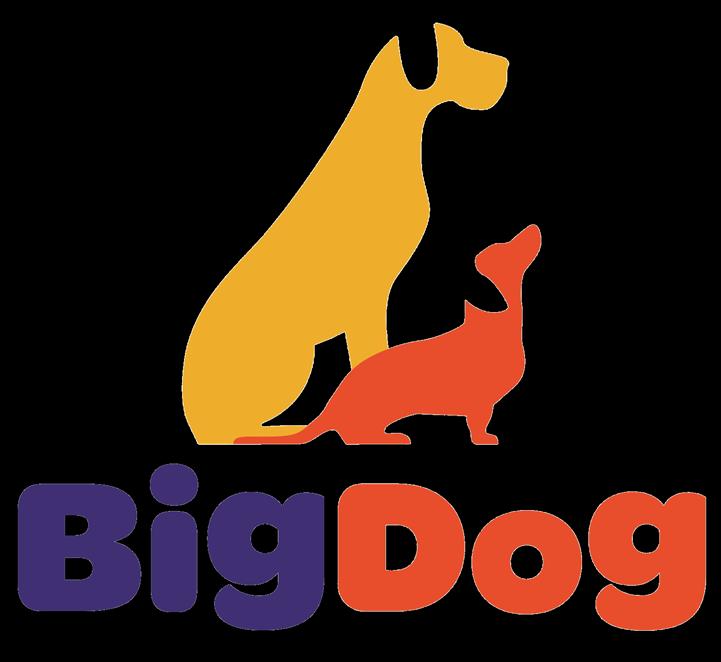
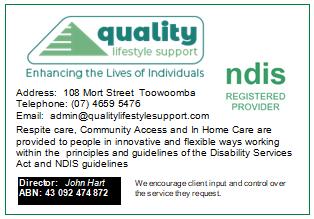
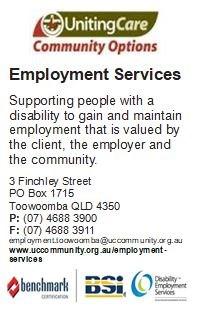
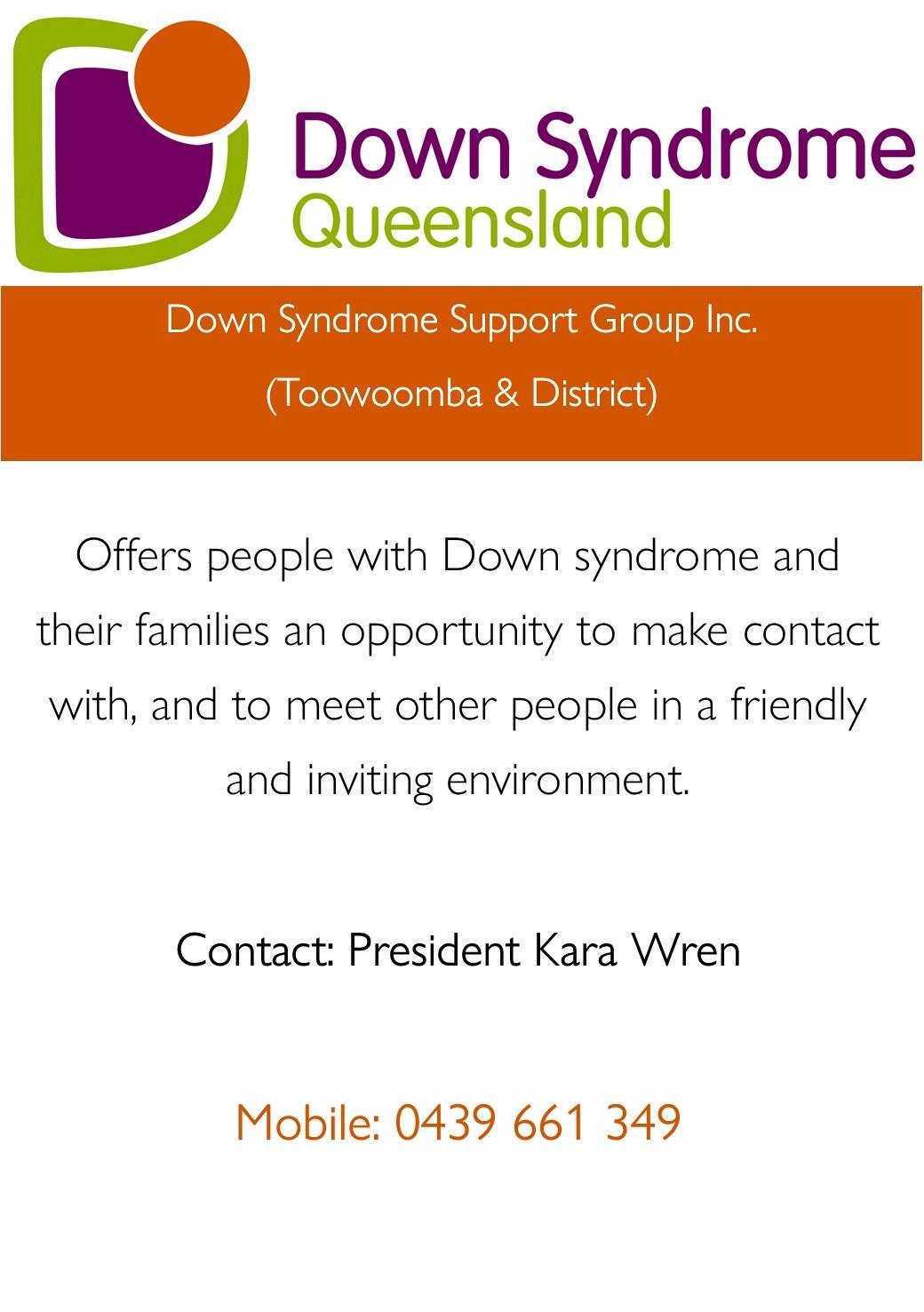
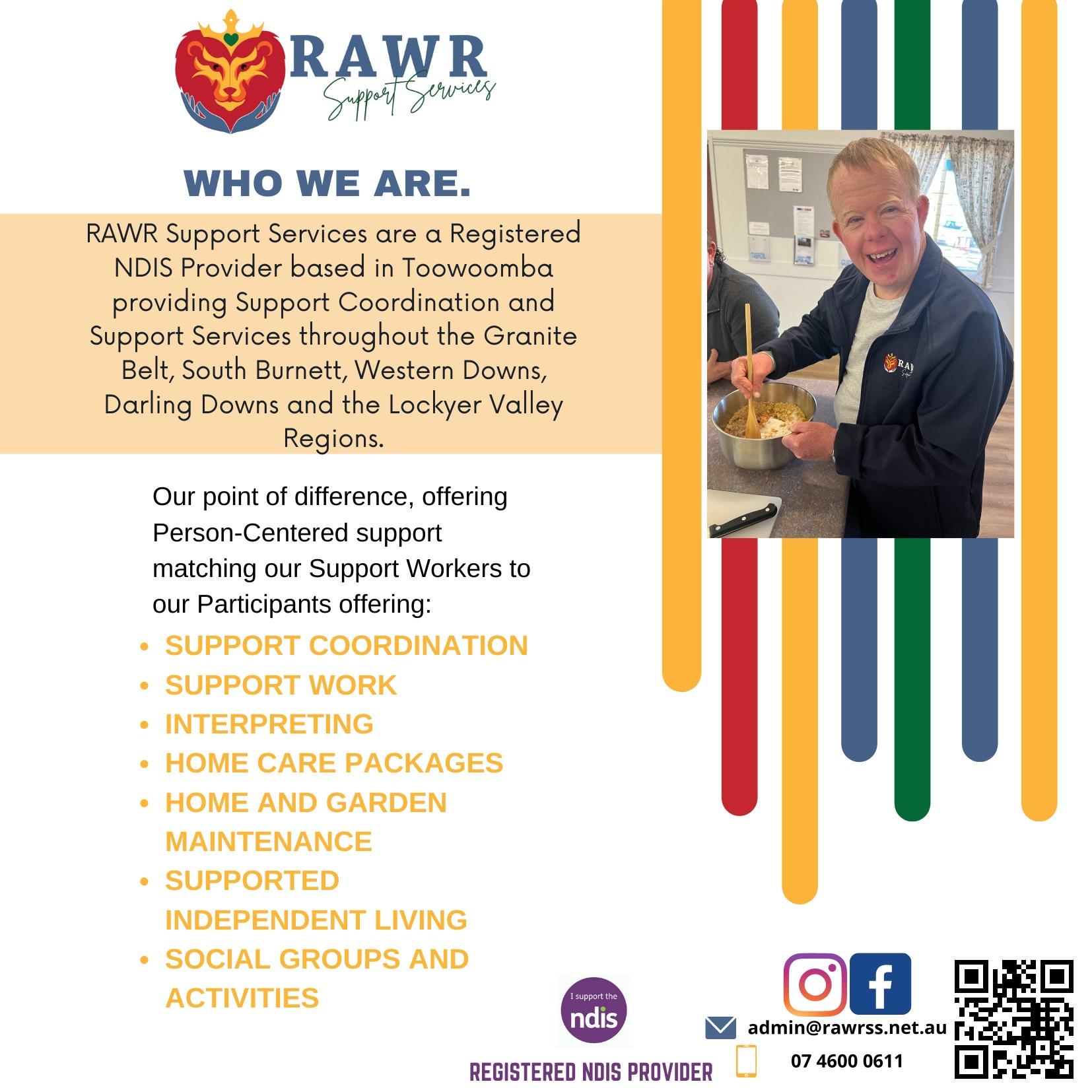
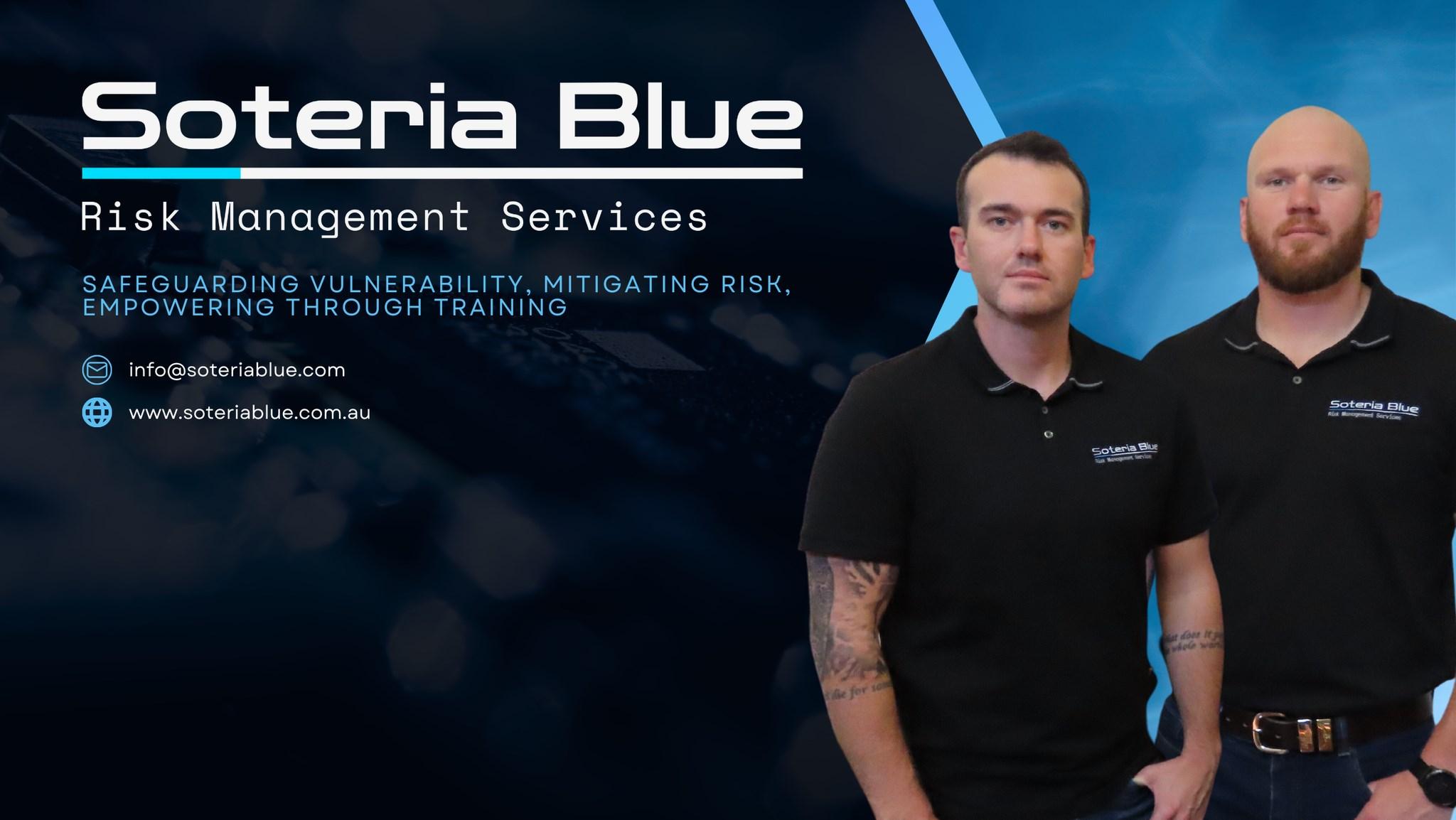
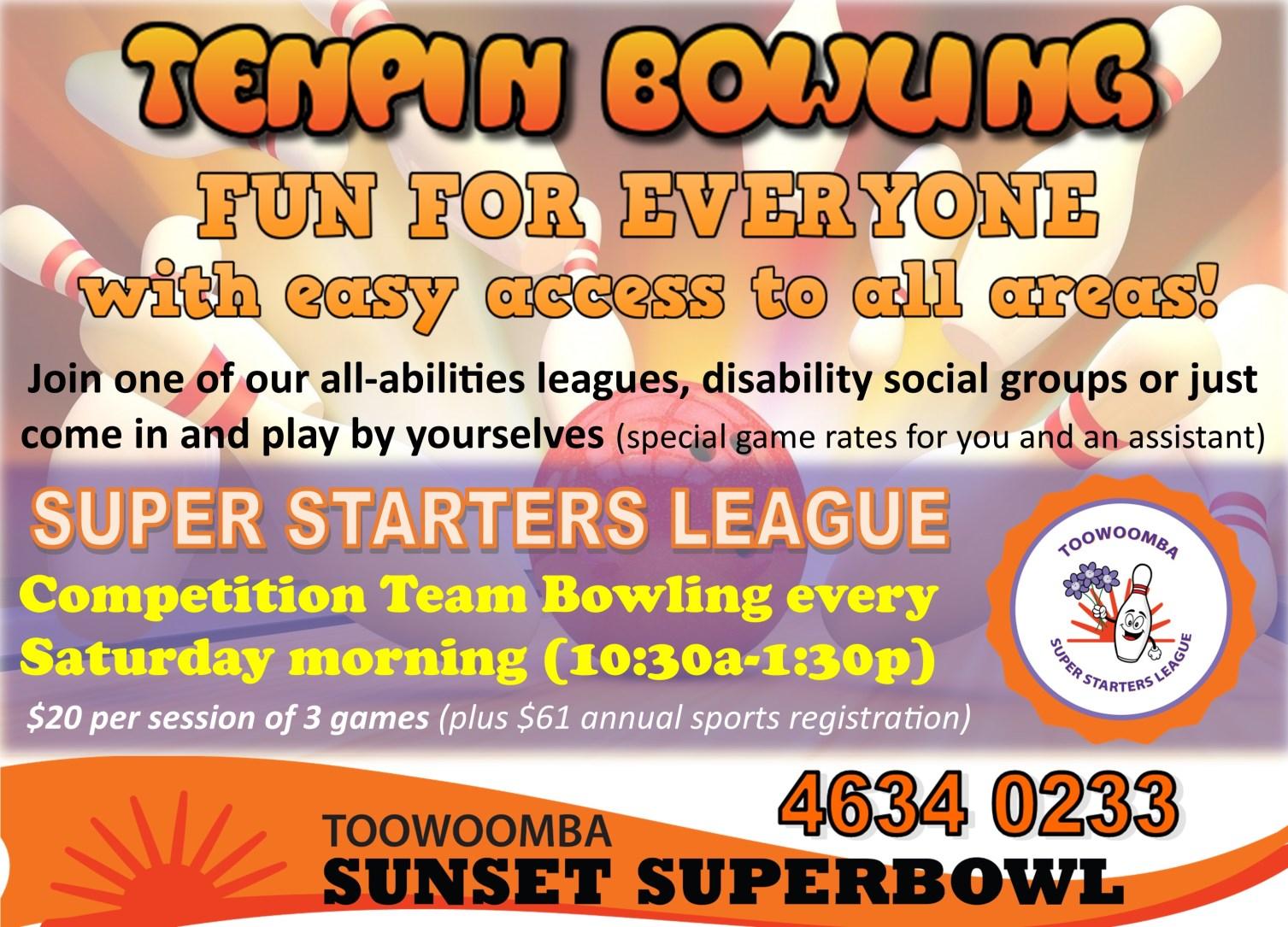
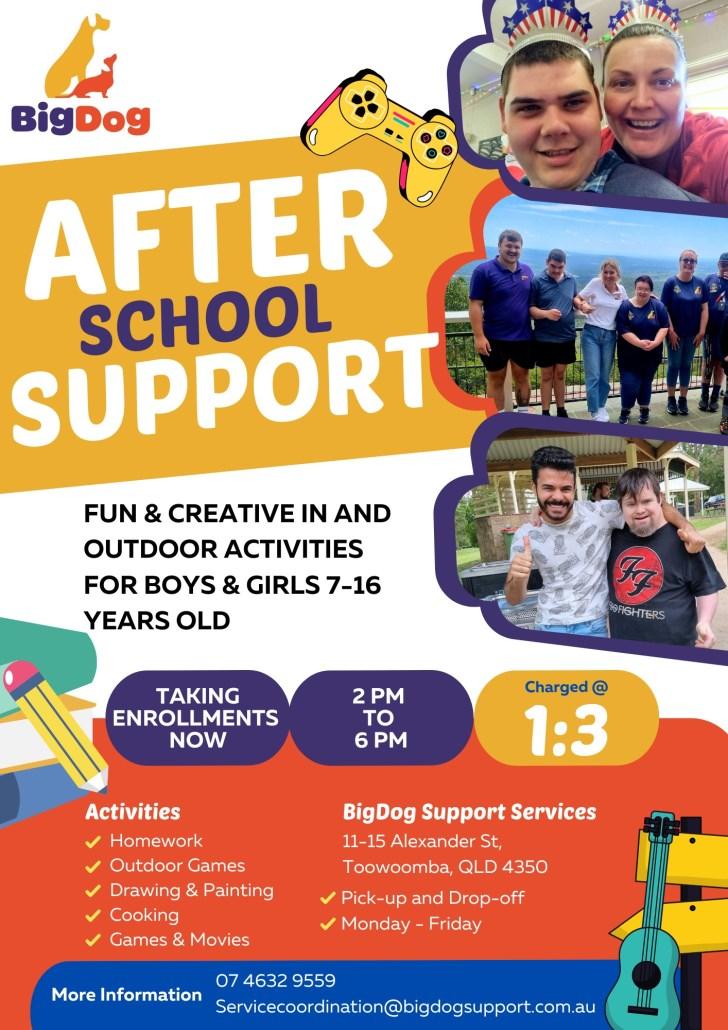
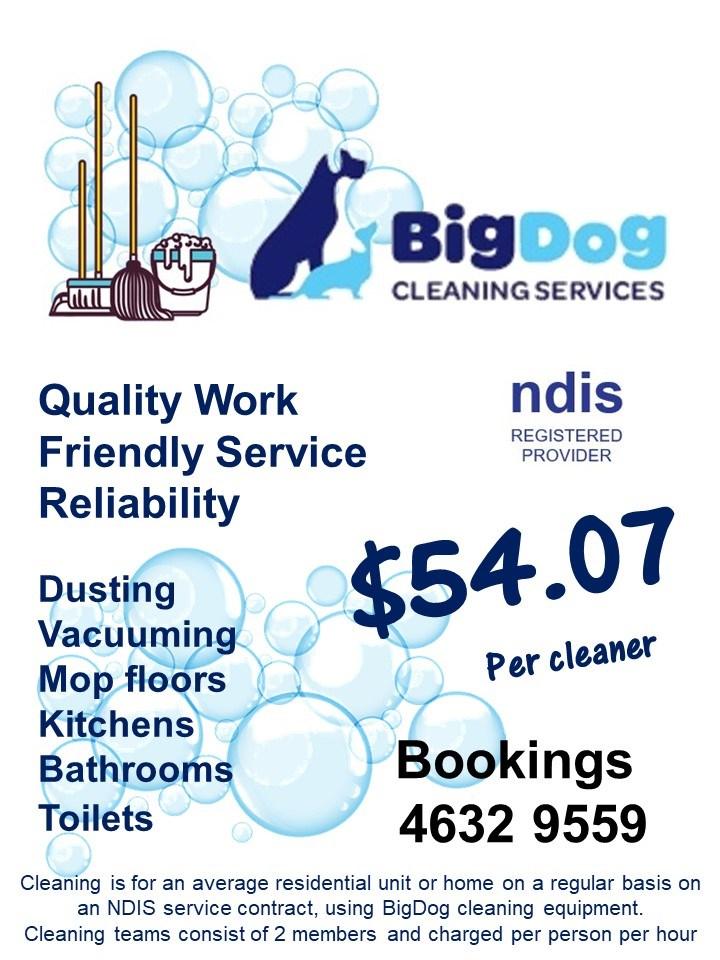

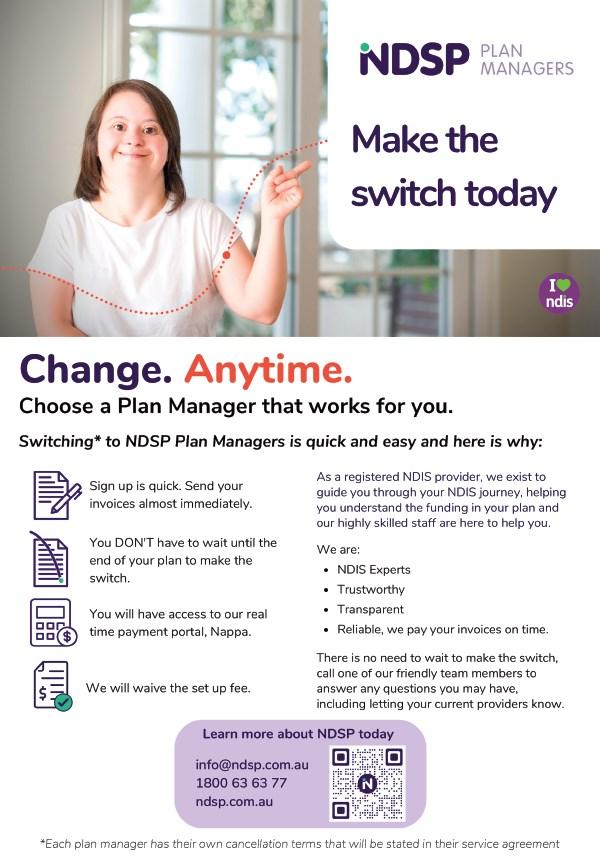
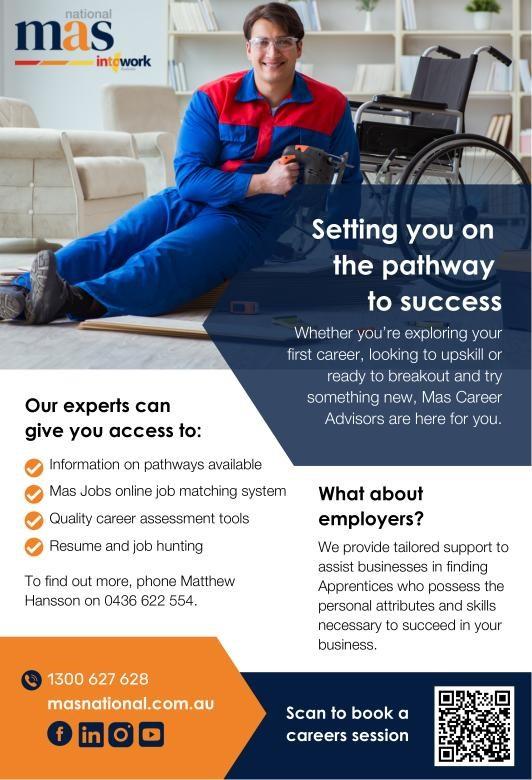
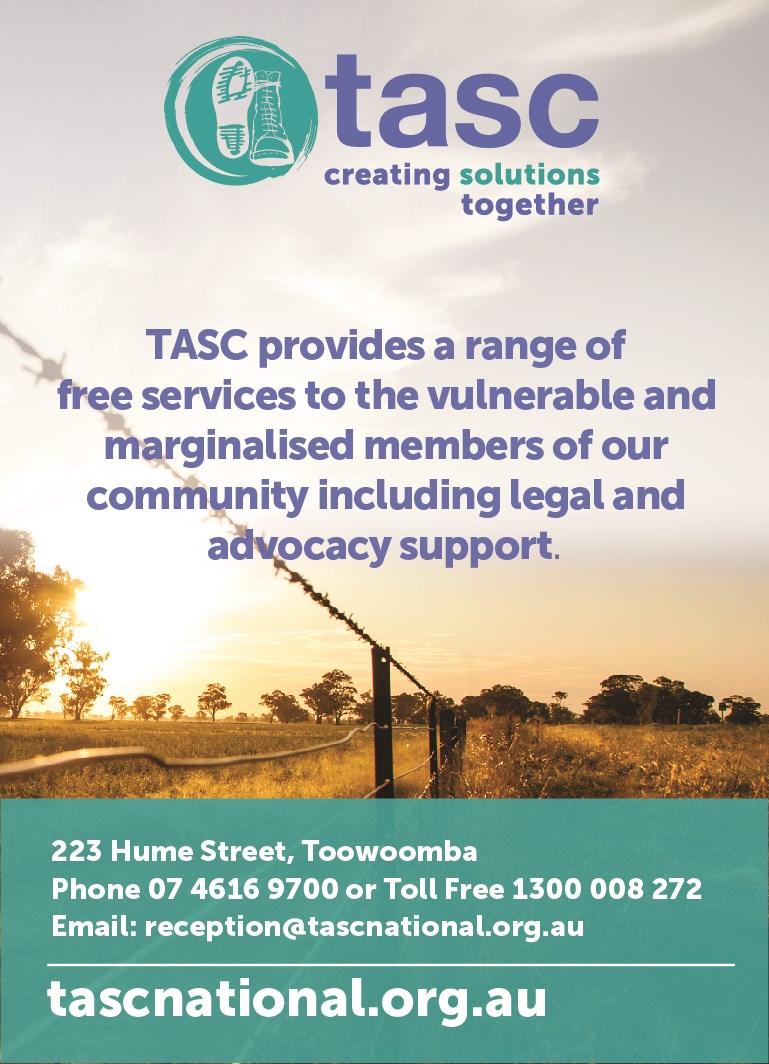
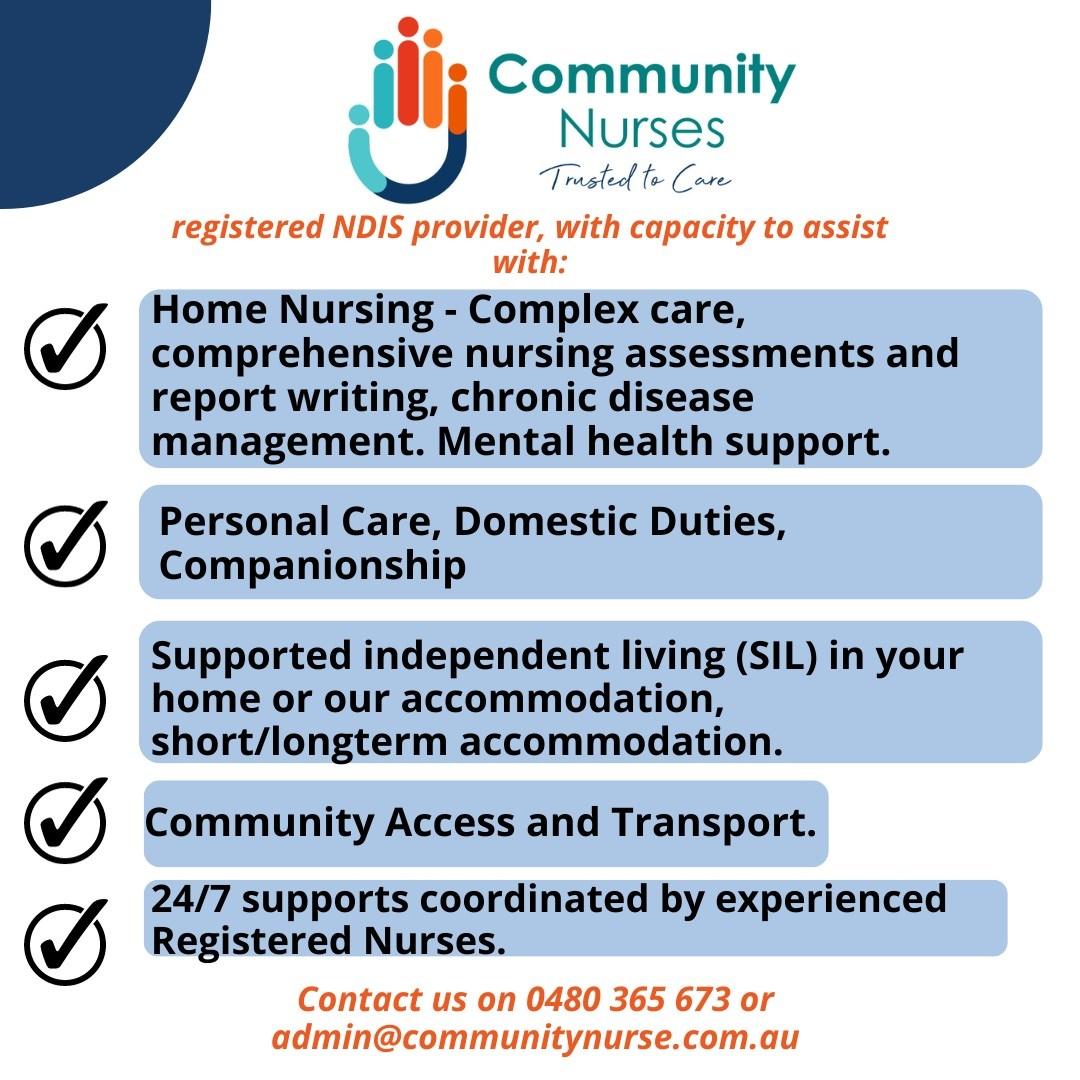

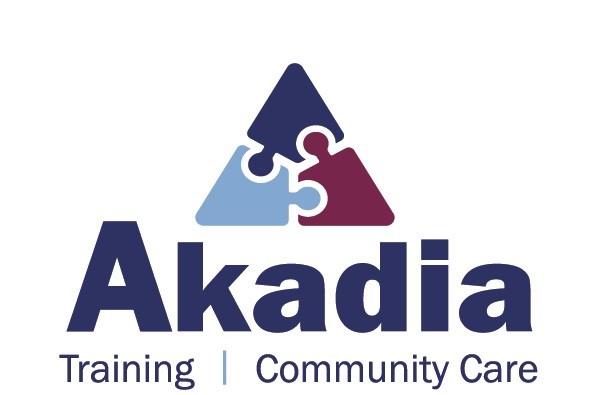
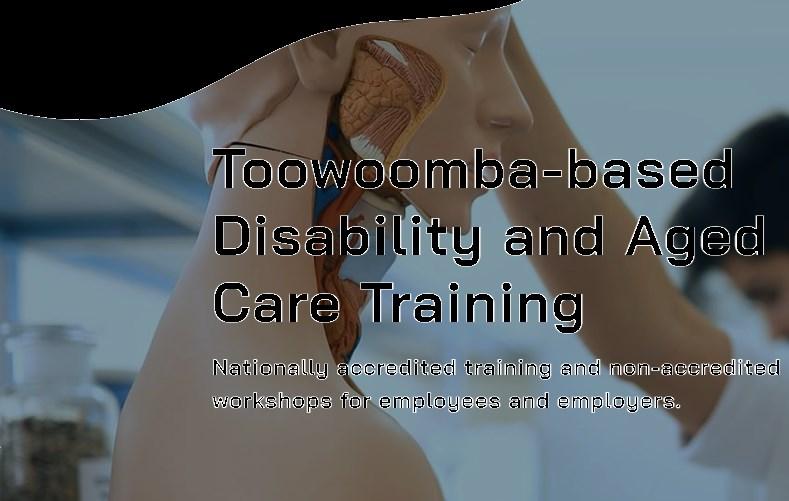
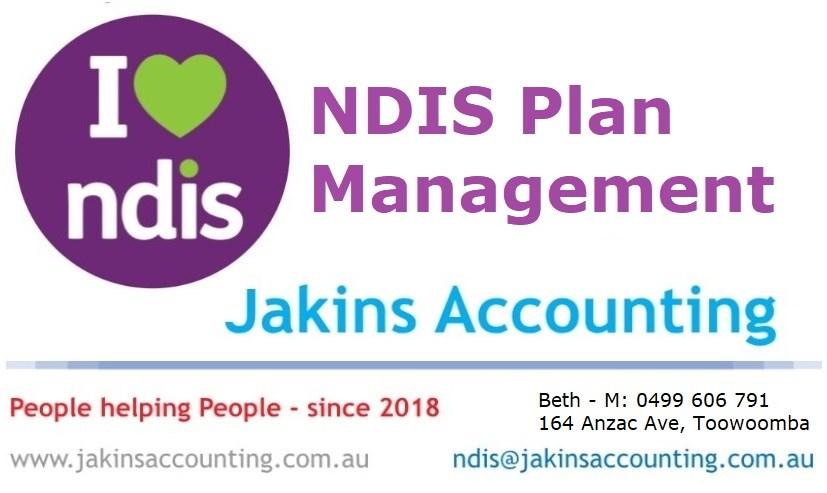
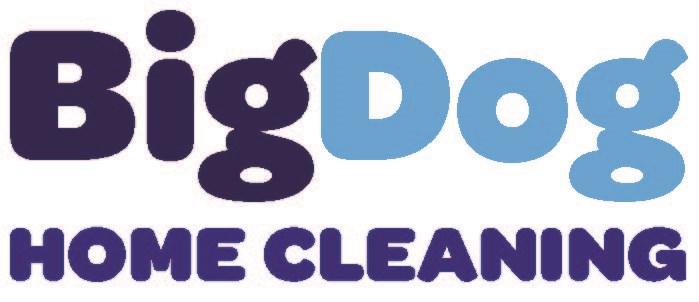
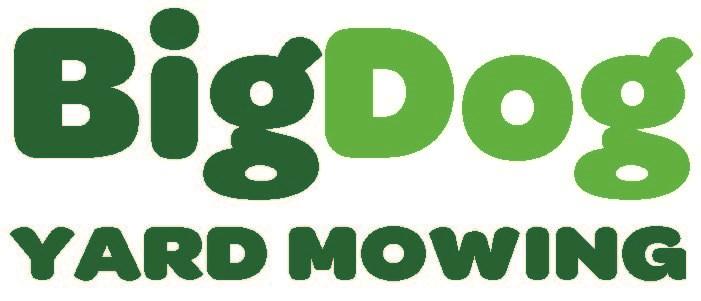
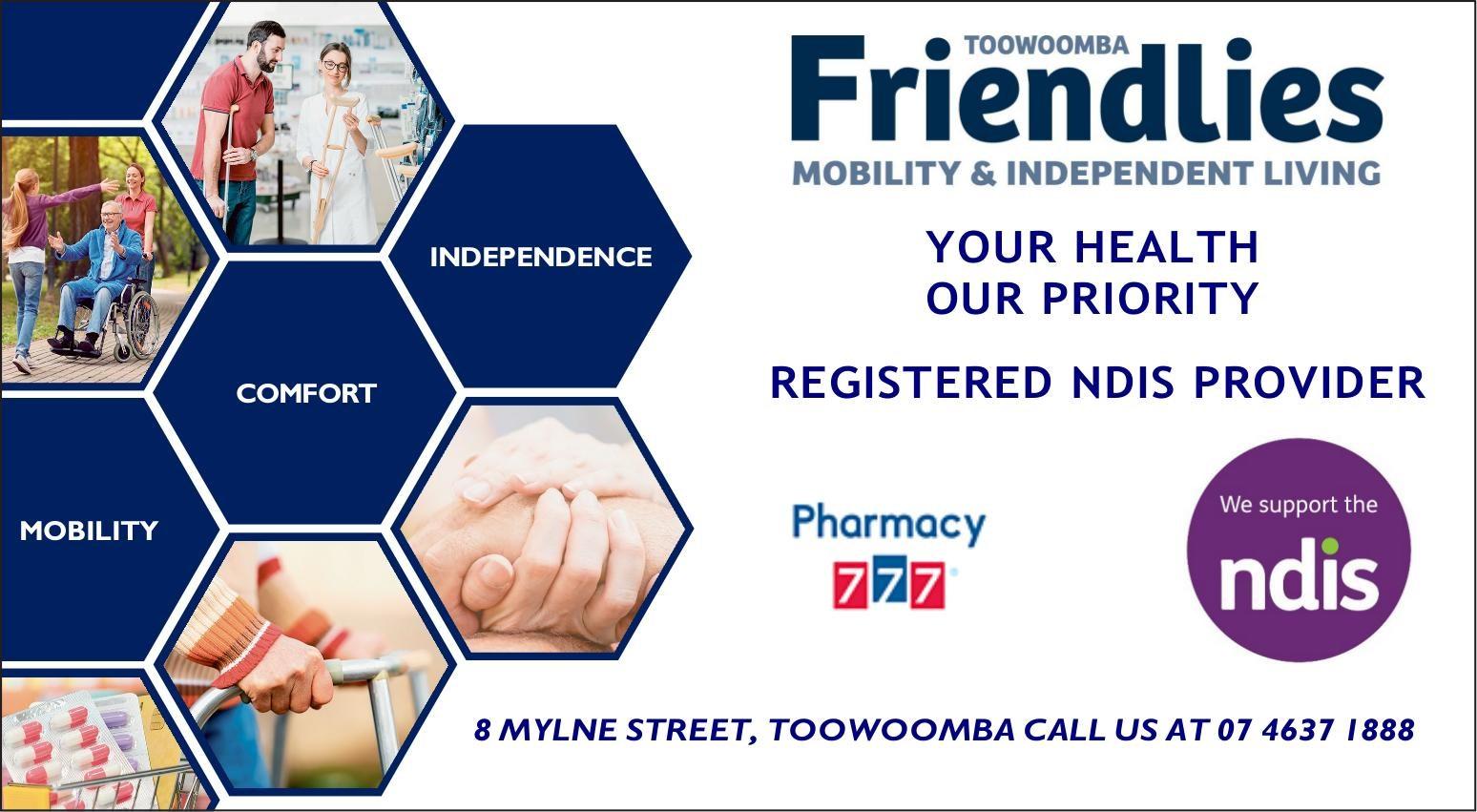
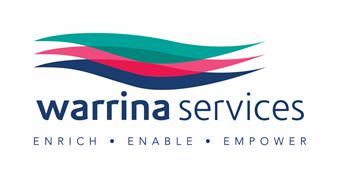
Warrina Services is a specialist support agency that has been providing individual support to people of the Darling Downs since 1986. We support people with a diverse range of needs and also provide mental health services to assist personal recovery.
We can help you to achieve positive outcomes in your life. These may be related to choice and independence, education or training, attending social activities, increasing skills, getting a job or contributing to your community.
If you would like further information please visit our website
www.warrinaservices.org.au Or contact us
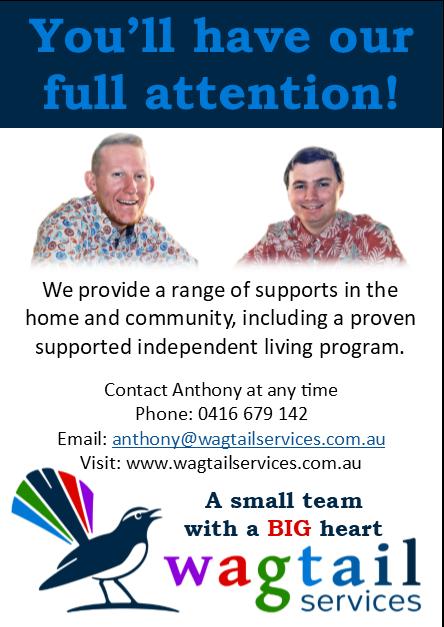
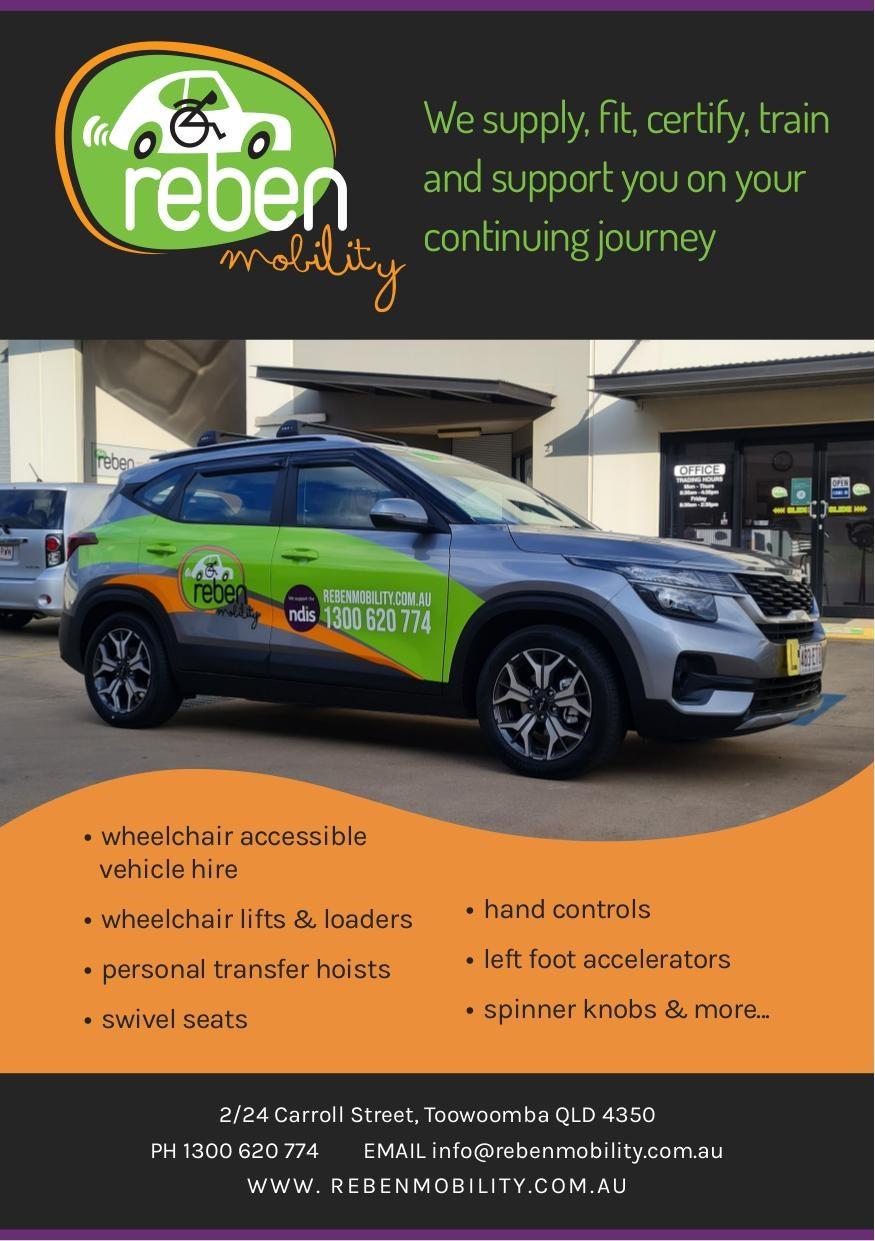
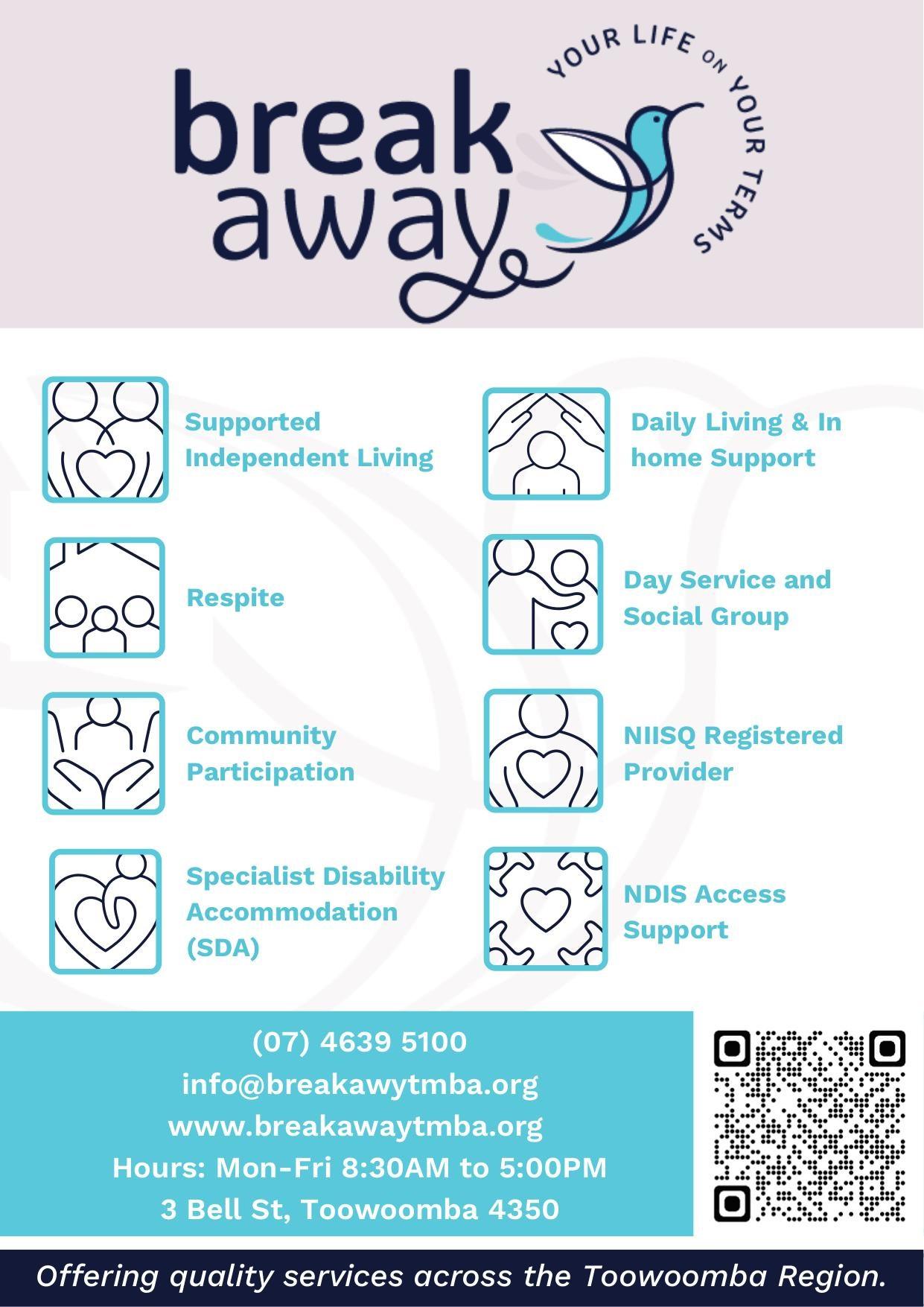
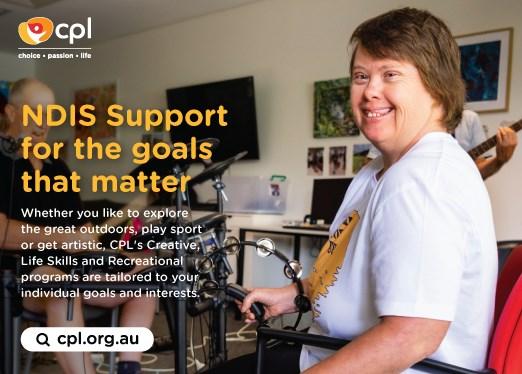

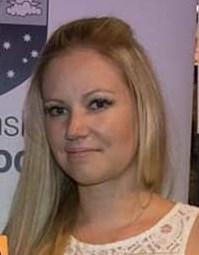


PUBLISHER: Disability Media Association Inc (Australia) (DMAA)
TELEPHONE: (07) 4632 9559
OFFICE: Paul Myatt Community Centre 11-15 Alexander Street Toowoomba (open Monday to Friday 9:00am-3:00 pm)
POSTAL ADDRESS: PO Box 3621 Toowoomba QLD 4350
E-MAIL: spaull@bigdogsupport.com.au
MANAGEMENT BOARD: Steven Paull (President) Courtney Carroll (Editor) Jess Wright (Secretary) Ann Paull (Treasurer)
CONTRIBUTORS: Bronwyn Herbertson, Sharon Boyce, Aidan Wilcock, Dean Gill, Jess Wright, Steven Paull and many others.
PUBLISHED
January/March/May/July/September/November
ABN: 72 821 350 911
PRINT POST APPROVED: PP 424022/ 1811
DISCLAIMER/INDEMNITY
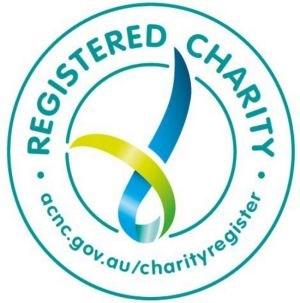
Articles and adverts reproduced on these pages are accepted and published in good faith. It is a condition of acceptance that advertisers and article writers accept full responsibility for their advertisements and articles, and will fully indemnify the producers in the event of any claims or legal proceedings against them. Articles published are not necessarily the view of the publishers. Advertisements are also accepted on the basis that they do not conflict with any discrimination laws or other laws currently in force.
ADVERTISING
Although we are a volunteer and non profit organisation, we are not funded in any way, and have to cover costs of this publication by charging for advertising. WhatsUp reserves the right to adjust, resize or move advertisements when necessary to allow for editing
WhatsUp IS AVAILABLE FROM:
1) SUBSCRIPTION (In advance) $20 per year (includes delivery/postage).
2) A single edition of WhatsUp can be bought at the office and selected outlets. You may also subscribe by using the form on the outside cover.
3) Reference copies are held in the Tourist Office and Toowoomba Library.
Copyright Protected. All pages are subject to copyright law and may be copied only with the permission of WhatsUp. Copies are not to be used commercially or for profit or for personal financial gain. Permission may be granted to copy only if the purpose is to give it away to others for their personal interest but not to any other organisation or service.
All articles are accepted in good faith and are not necessarily the view of the Editorial team or Management. Articles are accepted on the understanding that in the event of any claims against WhatsUp, the writer of the article will take full responsibility and indemnify WhatsUp in the event of legislation against it. Articles are also accepted on the understanding that the contents do not breach any Disability laws or other legislation currently in use.
WhatsUp In Disability is provided as a Master Copy to individuals and organisations or to view online form our website. We are environmental friendly, we do not print any more copies than is absolutely necessary. We prefer and encourage the practice of passing the magazine from person to person or copying the whole magazine to pass on to others. Permission is needed to copy (see Copyright above) When copying the magazine we require that the pages be marked ‘copy’. ANN PAULL
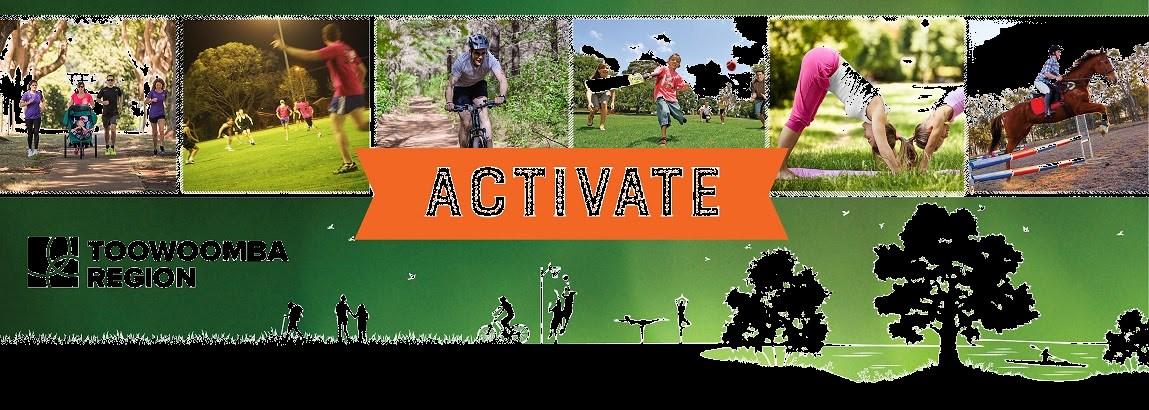
The purpose of the Access & Equity Plan is to provide Council with a framework to guide decision making and to determine Council’s role in providing services and facilities to make Toowoomba region an inclusive and accessible community for all. Access and equity for all, includes those people with a disability and their family and carers, parents with prams, the elderly, people with temporary and permanent injuries and those from culturally and linguistically diverse communities.
By developing an Access & Equity Plan, Council will be better able to meet the access and equity needs of the community. The Access & Equity Plan will:
• Assist in creating an accessible and inclusive community that meets the needs of people who live and work in, or visit the Toowoomba region
• Focus on practical and achievable actions that will enable people to have the same
www.whatsupindisability.org
opportunities to access services and participate in events, as can reasonably be achieved
• Provide people equal opportunity to make economic and social contributions to the community
• Promote values and benefits of an inclusive region.
• Assist Council to meet its obligations under the Disability Discrimination Act 1992 The plan focuses on 6 main areas:
• Pedestrians, parking and transport
• Community facilities, amenities and open space
• Planning and services
• Training and employment
• Communication and community engagement
• Programs and events
To contribute to the next edition please send your article to spaull@bigdogsupport.com.au
by the 20th February/April/June/August/October/December or reserve your advertising or story

